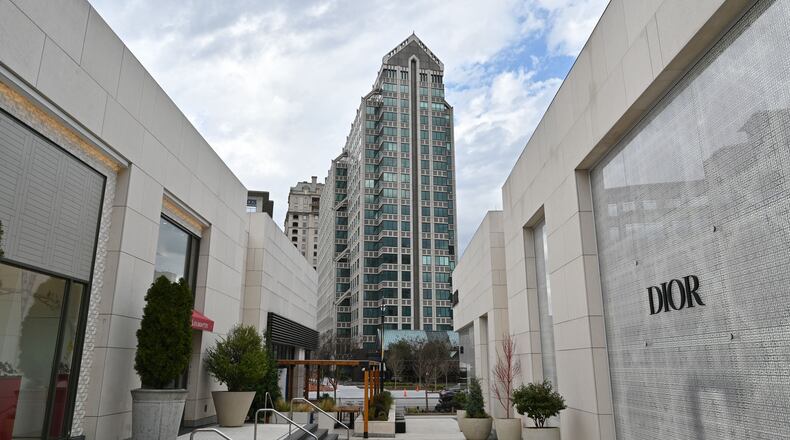A new organization chaired by several prominent attorneys is leading the push against the proposal to form a city out of Atlanta’s Buckhead community.
The new “Committee for a United Atlanta,” recently launched, says it hopes to educate Buckhead residents about why separating from Atlanta is a bad idea. The Buckhead cityhood movement has gained momentum over the last year. With the races for Atlanta mayor and City Council approaching, the group says time, energy and money would better spent pushing for candidates and City Hall officials to address issues affecting Buckhead, including crime and infrastructure.
The pro-cityhood effort is led by a group formerly known as the Buckhead Exploratory Committee, which is now called the Buckhead City Committee. The organization says having a separate city would better address the alarming rise in violent crime Atlanta has seen over the last year.
The co-chairs of the new opposition group are Linda Klein, a past president for the American Bar Association, and Edward Lindsey, a former state representative whose district included much of Buckhead. Both agree that the rise in crime is concerning, but that a new city won’t solve the problems.
“The cityhood proposal at this time, at this critical time before the election, is a distraction. It takes our eye off the ball electing the new government,” Klein said. “This is a great time for Buckhead to come together and interview candidates and get candidates to make commitments to Buckhead.”
A bill was introduced at the end of this year’s legislative session that, if passed and signed by the governor, would put a referendum on the ballot allowing Buckhead residents to vote on cityhood. The new municipality would be called “Buckhead City,” since the town of Buckhead, population 220, already exists in Morgan County.
But the Committee for a United Atlanta, which is registered with the state as a nonprofit advocacy group, argues that road would be long and complicated.
Credit: HYOSUB SHIN / AJC
Credit: HYOSUB SHIN / AJC
“We need to point out the practical political hurdles that it would take in order to accomplish this,” said Lindsey, who is now a partner at the law firm Dentons. “I know the extreme difficulty it would take to do so, and the high unlikelihood of success.”
In a statement, Bill White, the chairman and CEO of the Buckhead City Committee, said seeing the “deterioration of Buckhead” makes it clear why Buckhead City is needed.
“Being shot while running errands at Home Depot is an urgent wake up call for anyone paying attention,” White said. “To oppose our movement at this stage is truly puzzling to us. We believe it would be wise for anyone opposing Buckhead City to wait for the feasibility study to be completed and let the facts speak for themselves.”
That feasibility study is expected to take months to complete, and would analyze how large the new city would be and if it would be financially viable.
An Atlanta Journal-Constitution analysis found that Buckhead City would have roughly 90,000 residents, according to the boundaries included in the legislation to create the new city. That would take nearly 20% of Atlanta’s population, but it would remove about 40% of the assessed value of the city of Atlanta’s property off the books, according to Fulton County tax records. Nearly 75% of residents would be white, and 11% Black.
The pro-cityhood committee recently said it has raised over $400,000, and that Mayor Keisha Lance Bottoms’ decision to not seek reelection does not affect their mission.
Klein and Lindsey said the Committee for a United Atlanta has not yet decided on its budget or funding goals. The group plans to contact residents and candidates ahead of the Nov. 2 election.
“I would like to see us be able to connect with every resident of Buckhead, so that they can hear both sides of the issue, and also discuss with them the constructive ways in which we can address the problems in Buckhead,” Lindsey said.
About the Author
Keep Reading
The Latest
Featured




